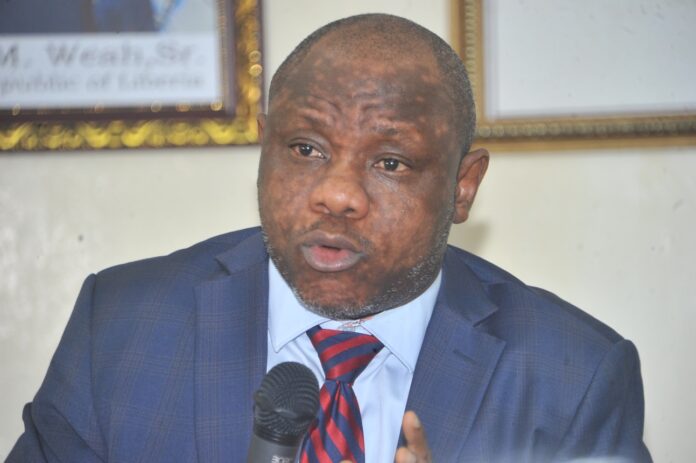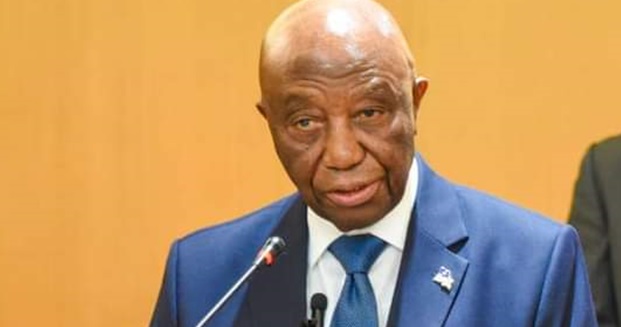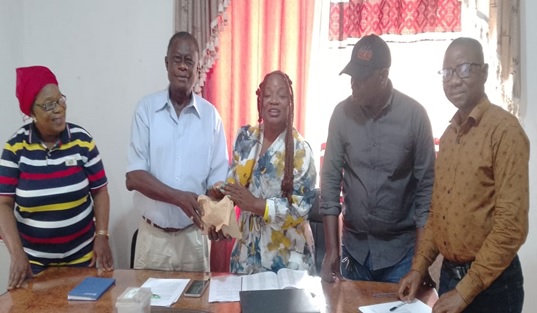MONROVIA, OCTOBER 3, 2024 – A newly issued writ on Tuesday, October 1, 2024, by Criminal Court “C” at the Temple of Justice imposes strict travel restrictions on former top Liberian officials, including Samuel D. Tweah Jr., former Minister of Finance, and several other high-ranking officials from the previous administration. The amended writ, signed by Presiding Judge A. Blamo Dixon, requires these individuals to obtain explicit court approval before they can leave Liberia.
The writ, known as a “Ne Exeat Republica,” directly impacts five key former officials: Samuel D. Tweah Jr.; Cllr. Nyanti Tuan, former Acting Minister of Justice; Stanley S. Ford, former Director-General of Financial Intelligence; D. Moses P. Cooper, former Financial Intelligence Controller; and Jefferson Karmoh, former National Security Advisor to the President. The Republic of Liberia, represented by the Liberia Anti-Corruption Commission (LACC), is the plaintiff in the case, which includes serious charges such as economic sabotage, theft of property, money laundering, criminal facilitation, and criminal conspiracy.
According to the amended writ, the court’s order stems from concerns that the defendants are attempting to flee Liberia and evade justice. The writ states that if any of the defendants attempt to leave the country without prior approval from the court, law enforcement is instructed to arrest them immediately. Their passports are to be confiscated and handed over to the Sheriff of Criminal Court “C,” Capt. Tina G. Norring.
The writ also emphasizes that these defendants cannot travel outside Liberia’s borders without a formal court clearance. Should they try to leave without authorization, they will be detained and brought before the court on the next available working day. Judge Dixon’s order underscores the severity of the charges against these former officials and the need to ensure their presence in Liberia while the legal proceedings unfold.
The legal case centers around multiple allegations of economic crimes, including the misuse of public funds and illegal expenditure of state money during their tenure in government. The charges, filed by the LACC, accuse the defendants of fraud involving Liberia’s internal revenue, theft of property, and money laundering schemes that may have contributed to significant financial losses for the country.
The issuance of the writ signals the court’s intent to prevent any potential escape by the defendants, who are accused of orchestrating large-scale financial misconduct that has allegedly drained public resources and undermined Liberia’s economic stability.
The travel ban places the former officials in a precarious legal position, as they must now navigate their defense while remaining within Liberia’s borders. The court’s decision to grant or deny future travel requests will likely depend on the progression of the legal case and the need for their presence during the judicial process.
This development is part of broader efforts by Liberia’s Anti-Corruption Commission to hold former government officials accountable for actions taken during their time in office. It highlights the government’s commitment to addressing allegations of corruption, restoring public trust, and ensuring that no one is above the law.
As this high-profile case unfolds, all eyes remain on the court and the ability of law enforcement to enforce these travel restrictions and bring those responsible to justice.







